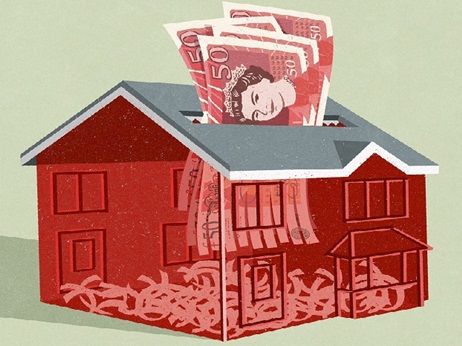
1. London Renters spend 60% wages on rent
The English Housing Survey reports that Londoners spend an eye-watering 60% of their gross earnings on rent. Excluding housing benefit this figure rises to 72%.
Even more shockingly, 16-24-year-olds are forced to pay 88% of their income on rent in the capital. When housing benefit is included this falls to 81%. However this age group is particularly vulnerable to reductions in housing benefit.
2. It is cheaper to commute from Madrid each day than rent in Camden Town
Renting a flat in Camden Town and working in Liverpool street will cost a Londoner £2,128 monthly or £25,532 yearly.
If the same Londoner rented a flat in Madrid’s city centre and booked return flights from Madrid to Stansted from Monday to Thursday, he or she would spend £1,725 a month or £20,708 a year.
3. The average rent on a two-bedroom flat is £707 a week or £100 a day
Figures from property investment firm London Central Portfolio (LCP) show that the average rent on a two-bedroom flat in central London is a whopping £707 a week.
Average rental prices of rooms in a flat-share in Paddington (Zone 1), can cost around £1100 a month.
Council taxes are also a significant consideration. Areas like Richmond and Kingston tend to be the most expensive at around £1929 a year. Cheaper areas include Wandsworth where council tax averages £823 a year.
4. London professionals are being forced to live “12 to a house”
According to Ealing Central and Acton MP Rupa Huq, London professionals are being forced to live “12 to a house”, thanks to the soaring rents.
In a House of Commons debate Huq said: “Renting is no longer just a transitory thing for those who are in their twenties. It’s becoming routine for people further up the age scale.
“Many in my constituency in their 30s on good money find themselves sometimes 12 to a house with shared sitting room and kitchen.
“At that age, ‘who stole my cheese?’ should not be a way of life.”
5. By 2025, more than half of people under 40 will be living in property owned by private landlords
Over half of 20 to 39-year-olds will be renting from private landlords by 2025, according to accountancy firm Price Waterhouse Coopers.
PwC economists state that: “For 20-39 year olds, we would expect over half to be renting by 2025, implying a continuing rise in the size of ‘Generation Rent’.
The report suggests that home ownership levels will continue declining to dramatic new levels, dropping below 60% by 2025, as the rise of ‘tenant nation’ looms.
6. The UK has the highest private rents in Europe
A study by British Housing Federation found that rents in the UK are the highest in Europe.
In countries like Germany and Holland, private rents are around 50% cheaper than in the UK.
David Orr, chief executive at the National Housing Federation, said: “British renters get a raw deal in comparison to their continental counterparts. Not only do they face crippling rents, but renters in the UK have almost no certainty about whether they will be able to stay in their home from one year to the next.”
7. One in three rented homes are “not fit to live in”
One in three British three homes do not meet the government’s decent home minimum standard, according to 2014/15 English Housing Survey.
A Parliament report published last year admitted that there have been no minimum property standards for private rented housing in England since 2006.
Furthermore, more than 170 tenants are being evicted every day according to 2015 Ministry of Justice figures. In total 42,728 evictions recorded in England and Wales in 2015.
According to Gillian Guy, CEO of Citizens Advice, “It’s hard to feel at home in the private rented sector. People can struggle to lead a normal life when their home is in a state of disrepair and they could be told to leave at any time. But many feel powerless to speak out.”
The Renters Alliance helps renters with bad landlords and letting agents. If you have a story you would like to share, please contact the National Renters Alliance through our website or email us at contact@nralliance.co.uk